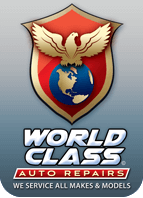Auto Repair FAQ: Expert Answers to Common Questions
Do European cars require premium fuel?
Almost every high-performance European car requires high-octane fuel to maintain peak efficiency and optimal engine health. Refilling with conventional fuel at the pump may damage the engine and other essential auto parts, gradually degrading the fuel efficiency and overall vehicle performance.
What are common engine issues in European vehicles?
Typical engine complications include oil leaks, a faulty timing chain, coolant leaks, and turbocharger issues. Since the engine acts as the heart of your vehicle, whenever any of its internal components fail, it can disrupt the entire driving experience, and in the worst case, leave you stranded if left unaddressed.
What causes oil leaks in European engines?
When engine components, such as gaskets, deteriorate, oil pans crack, or seals weaken, the engine oil can escape through them, lowering its level and causing poor lubrication as well as overheating throughout the engine compartment.
What are the signs of a failing timing chain?
You may hear loud and unusual rattling noises while igniting your vehicle when the timing chain breaks. Apart from this, you may also experience poor engine performance and misfires.
How often should you change the engine oil in a European car?
It’s recommended to change the oil once every 3,000 to 6,000 miles, depending on oil type and driving conditions. Using low-quality or the wrong kind of oil and aggressive driving, especially on rough terrains, can damage the oil prematurely, requiring an early oil change.
What are common transmission problems in European vehicles?
Some usual transmission issues include delayed shifting, gear slipping, gear oil leaks, or jerky movements. These issues may result from internal transmission wear and can escalate over time if left untreated.
What causes transmission failure in these cars?
Continuing to drive with low or contaminated transmission fluid can cause permanent failure of the entire transmission system, producing excessive heat, wearing out the clutches, or failing the solenoids.
Are dual-clutch transmissions reliable?
Yes, dual-clutch gear systems are reliable, but they require regular upkeep as they are more prone to premature wear due to a lack of routine care and rough usage.
What causes a burning smell under the hood?
When the engine oil or coolant starts burning after dripping onto the hot engine or exhaust components, you may smell a burning odor emanating from the hood.
What does the check engine light mean?
The check engine light is a dashboard warning light that illuminates or flashes when the engine, transmission, emissions, or drivetrain system detects a fault.
What does the ABS warning light indicate?
The ABS warning light usually appears or blinks on your vehicle dashboard when the anti-lock braking system develops any significant issue.
How often should you flush the coolant?
It’s recommended to drain the old coolant and replenish the cooling system every 24,000 to 36,000 miles, or as specified by the manufacturer. It’s crucial to use a new, premium-quality coolant suitable for your vehicle model for optimal engine cooling and operation.
Can a bad water pump damage the engine?
Yes, because a poorly functioning water pump can lead to overheating as well as fail the head gasket prematurely, requiring complete replacement.
How often should wheels be aligned?
It’s better to align the wheel once after crossing every 6,000 miles or as specified in the owner’s manual. However, meeting with accidents or even hitting small bumps can also misalign the wheels, requiring realignment.
Is flushing brake fluid essential?
Yes, the brake fluid should be flushed every 2 years to maintain optimal braking efficiency and performance, which is crucial for keeping you safe on the road.
BOOK APPOINTMENT
We’re here to help drivers all throughout the Boca Raton area take better care of their vehicles. Please call or visit our shop today to learn more or to schedule your next appointment.
Service Hours
- Monday : 7:30AM – 5:30PM
- Tuesday : 7:30AM – 5:30PM
- Wednesday : 7:30AM – 5:30PM
- Thursday : 7:30AM – 5:30PM
- Friday : 7:30AM – 5:30PM
- Saturday : 8AM – 3PM
- Sunday : Closed
